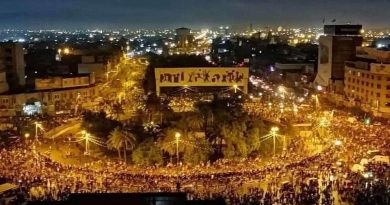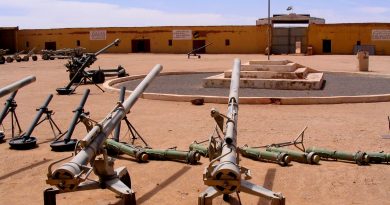Focus on Prison Conditions: Nauru
By Nicholas Elden
Staff Writer
Mothers committing suicide, prison guards throwing rocks at children, and people lighting themselves on fire are all typical occurrences at the prison of Nauru. Nauru is a detention center for refugees hoping to enter Australia, which opened in 2001. It has grown to shelter 410 detainees, 49 of which are children. The conditions on the small island are repulsive. Both Amnesty International and Human Rights Watch have released reports claiming that the living conditions on the island are torture. From rampant fear of sexual and violent assault to poor healthcare, refugees are placed in dire circumstances when they have not even committed a crime.
When Amnesty International visited Nauru, they uncovered disturbing findings. At first glance, it is a tiny and impoverished island around eight square miles devastated by 40 years of phosphate mining. The people in the detention center are forced into small run-down homes or tents where smartphones are prohibited and curfews are enforced. Amnesty International spoke out about the center saying, “Many asylum seekers are beaten and robbed. Every woman interviewed said she could not go out alone […] local police made little or no effort to investigate attacks against them.”
While the Amnesty report calls for the immediate end of the center on Nauru, a further investigation of the island by The Guardian found more appalling discoveries. A teacher spoke to reporter Ben Doherty about an instance where a 10-year-old girl tried to jump off of the school building. The most sickening thing about this report is that it is not the only one. Doherty went on to describe a refugee family attacked in their home while the mother attempted suicide 10 times and the son refused to leave the home. Further, a young girl was sexually assaulted and prescribed adult antidepressive medication that has a “black box warning” against its use by children.
Prime Minister of Australia, Malcom Turnbull, told the Australian Broadcasting Corporation that the claims about Nauru are “absolutely false.” Turnbull claims that the refugees held on Nauru are the responsibility of the government of Nauru, not Australia, which is incorrect. The offshore detention processing policy is in violation of international law, most specifically with the UN Special Rapporteur on Torture. Australia is a party to this convention and, as found by reports, Australia has failed to protect refugees from torture or cruel, inhuman, or degrading treatment.
While Australia overlooks the injustices committed at Nauru, there are still many people and organizations taking notice. One individual in particular, Paul Stevenson, a psychologist and traumatologist, visited the island and noted that the Australian government is deliberately inflicting the worst trauma he has ever seen upon the people at Nauru. Between 2014 and 2015, Stevenson made 14 deployments to the Manus Island and Nauru and discovered absolute atrocities being committed: Six boys held without parents trying to kill themselves using the same razorblade, a 3-year-old boy allegedly molested by a guard and a mother who was too scared to report it, and a woman who the name of her husband into her chest because they were permanently separated. The trauma of offshore detention does not discriminate, and it affects every man, woman, and child living on the island.
A cause of neglect in monitoring the conditions at Nauru is Australia’s refugee policy that lowers global standards and shifts the boundaries of what nations find acceptable. This unjust policy is also apparent in Indonesia, and at Australia’s urging sharply increased its use of detention centers and criminalized the act to provide accommodations to anyone without a visa. Australia’s prime minister addressed the United Nations in September and encouraged the world to take Australia’s lead. Australia’s refugee policy is being praised by far-right European nationalist parties.
As more global backlash against Nauru and offshore detention centers circulates, it does not change the absolute torture that the inhabitants face every day. Criminalizing refugees trying to seek better conditions for themselves and their families is a crime in itself. To better combat the cruelty plaguing the residents of Nauru, people must express their concern and take insult by the degradation of abuse facing refugees around the world.


